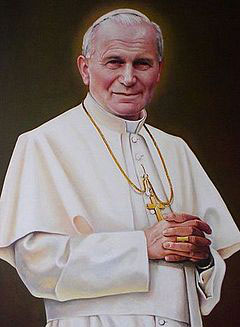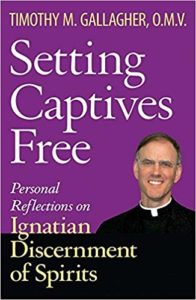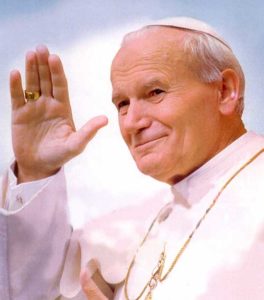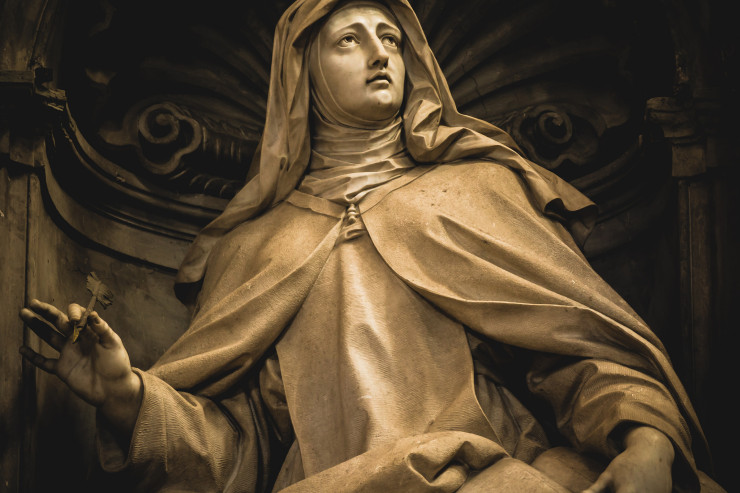Day 2 – A Novena to St. John Paul II
Podcast: Play in new window | Download (Duration: 2:30 — 1.7MB) | Embed
Subscribe: Apple Podcasts | Spotify | Amazon Music | Android | Pandora | iHeartRadio | JioSaavn | Podchaser | Gaana | Podcast Index | Email | TuneIn | Deezer | Anghami | RSS | More

Reflection by Saint John Paul II:
“Darkness can only be scattered by light. Hatred can only be conquered by love. My most fervent wish, which I entrust to God in prayer . . . is that we should all carry in our unarmed hands the light of a love which nothing can discourage.”
Prayer for the Intercession of St. John Paul II
O Blessed Trinity, we thank you
for having graced the Church with
Saint John Paul II and for allowing
the tenderness of your fatherly care,
the glory of the Cross of Christ
and the splendor of the Spirit of love
to shine through him.
Trusting fully in your infinite mercy
and in the maternal intercession of Mary,
he has given us a living image of
Jesus the Good Shepherd.
He has shown us that holiness
is the necessary measure of ordinary
Christian life and is the way of
achieving eternal communion with you.
Grant us, by his intercession,
and according to your will,
the graces we implore,
through Christ our Lord. Amen.
A Prayer composed by St. John Paul II
Mother… at this solemn moment we listen with particular attention to your words: “Do whatever my Son tells you.”5 And we wish to respond to your words with all our heart. We wish to do what your Son tells us, for He has the words of eternal life. We wish to carry out and fulfill all that comes from Him, all that is contained in the Good News, as our forefathers did for many centuries.
May our ears constantly hear with the proper clarity your motherly voice: “Do whatever my Son tells you.” Enable us to persevere with Christ. Enable us, Mother of the Church, to build up His Mystical Body by living with the life that He alone can grant us from His fullness, which is both divine and human.
[L’Osservatore Romano, 10-8-79, 14]
St. John Paul II, pray for us. Amen
For the full 9-day Novena to St. John Paul II with Mp3 audio and text visit here











